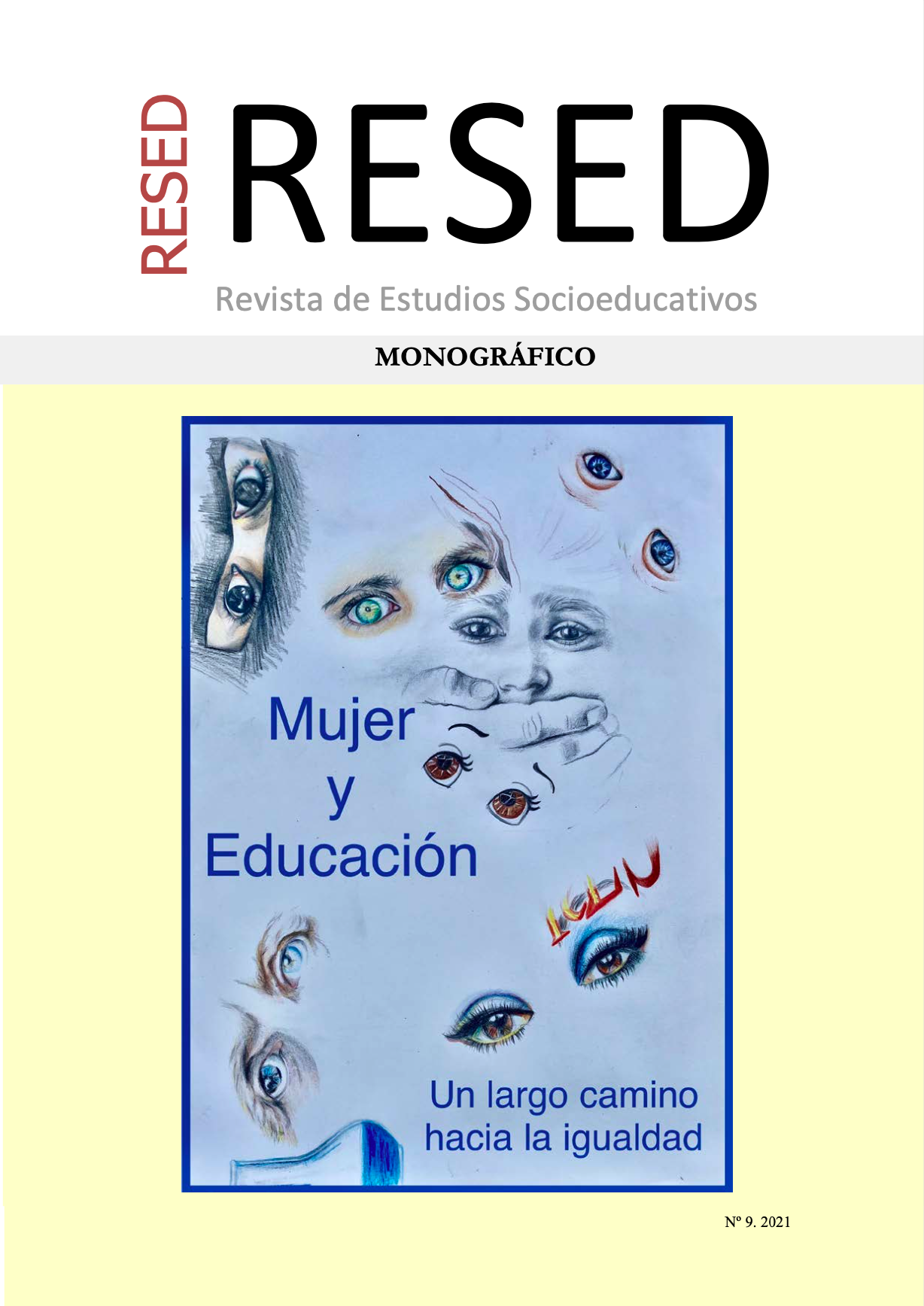The feminine principle in Pedro Almodóvar. A path of education to feel

Info
Abstract
Over time in his movies, Pedro Almodóvar not only has explored female sensibility, but has showed that it can be defined, in the latest modernity, as an “avant-garde” in the ability to live feelings and move in the direction of a full expression of the potential of the human being. On the article, at first it’s exposed how the director from La Mancha has showed that the path to the liberation of desire goes through the subversion of roles and structured habits in the dominant culture. Then the audience is invited to follow its female characters in a new continent of feelings.
Keywords
Downloads
How to Cite
License

This work is licensed under a Creative Commons Attribution-NonCommercial 4.0 International License.
References
Abbagnano, N. (1993). Storia della filosofia, Vol. 10. Torino: Utet.
Almodóvar, P. (2006). Volver. Guión. Madrid, España: Ocho y medio.
Benasayag, M., Schmit, G. (2003). Les passions tristes. Souffrance psychique et crise sociale. Paris: La Découverte.
Bragana, G. (2006). “Volver!”. Duellanti. Milano, Italia: Les Enfants.
Butler, J. (1999). Questione di genere. Il femminismo e la sovversione dell’identità. Bari-Roma: Laterza.
Cabrera Romero, L. (2020). Todo sobre mi madre, la mujer y los nuevos modelos familiares a través de la metaficción y la intertextualidad. Káñina, Revista de Artes y Letras de la Universidad de Costa Rica, vol. 44(2), pp. 115-126, doi: http://dx.doi.org/10.15517/rk.v44i2.44411
Canzoniere, A. (2019). Donne sull’orlo di una crisi di nervi. Disillusione. Recuperado de https://tinyurl.com/yxu8av9c
Chodorow, N. (1991). La funzione materna. Psicanalisi e sociologia del ruolo materno. Milano. La Tartaruga edizioni.
Colombo, F. (2003). Introduzione allo studio dei media. I mezzi di comunicazione fra tecnologia e cultura. Roma: Carocci.
de Laurentis, T. (2014). Soggetti eccentrici. En E. Missana (Ed.), Donne si diventa. Milano: Feltrinelli.
Deleuze, G., Guattari, F. (1972). L’Anti-Œdipe. Paris: Minuit.
Di Lello, F. y Di Lello, E. (2009). Maschile e femminile nel cinema di Pedro Almodòvar. Una lettura psicoanalitica di Hable con ella. Roma, Italia: ARACNE editrice.
Fabbri, S. (2016). Almodóvar e il suo universo femminino. Movie Trainer. Recuperado de https://tinyurl.com/y4d5xwew (17/05/2016)
Foucault, M. (1976). Histoire de la sexualité, 1: La volonté de savoir. Paris: Gallimard
Heidegger, M. (1954). Die Frage nach der Technik. En M. Heidegger, Vorträge und Aufsätze. Pfullingen: Günther Neske.
Jung, C. G. (1928). Die Beziehungen zwischen dem Ich und dem Unbewussten. Zürich: Rascher Verlag.
Kezich, T. (2006). “Almodovar: «Il mio omaggio alle donne»”. Corriere della sera. Recuperado de https://cutt.ly/1zlLIZa
Lando, A., Salzano, D., Scognamiglio, I. (2019). Insegnare il cinema per educare al sentire. En G. Jr. Pôrto, V. Amar Rodríguez (Eds.), Comunicación, Educación y Cine. Reflexiones y Construcciones. Universidade Federal de Roraima. Porto Alegre: Editora Fi.
Lev, L. (2013). “Our Rapists, Ourselves. Women and the Staging of Rape in the Cinema of Pedro Almodóvar”. En M. D’Lugo y K. M. Vernon (Eds.), A Companion to Pedro Almodóvar (pp. 203-224). Oxford: Blackwell Publishing Ltd.
Lin, C-Y. (2011), “La solidaridad femenina: Volver de Almodóvar”. En M.Salas Díaz, M. J. Gómez del Castillo y C. Morán Rodríguez (Eds.), Actas del XLVI Congreso Internacional de la Aepe (Asociación Europea de Profesores de Español). La cultura española, entre la tradición y la modernidad. Nuevos retos para la enseñanza del español (pp. 325-332). AEPE, Salamanca, España.
Lo Coco, A. K. (2020). Il desiderio è di scena. Torino: Ed. Amazon Italia
Maslow, A. H. (1962). Toward a Psychology of Being. New York: Reinhold Co.
Méjean, J-M. (2007). Pedro Almodóvar. Roma: Gremese.
Melloni, A. (2002). “Come comunicano le donne in Todo sobre mi madre, dalla sceneggiatura al doppiato”. En. D.A. Cusato y L. Frattale, Associazione Ispanisti Italiani, Testi specialistici e nuovi saperi nelle lingue iberiche (pp. 187-197). Messina, Italia: Andrea Lippolis Ed.
Mereghetti, P. (2020). Dizionario dei film 2021. Milano. Baldini-Castoldi.
Minesso, B., Rizzoni, G. (2010). Il cinema di Pedro Almodóvar. Dal postmoderno al contemporaneo. Venezia: Marsilio.
Missana, E. (2014). Introduzione. En E. Missana (Ed.), Donne si diventa. Milano: Feltrinelli.
Morandini, L., Morandini, L. y Morandini, M. (2003). il MORANDINI. Dizionario dei film 2003. Bologna, Italia: Zanichelli Editore.
Morin E. (1962). L’Esprit du Temps. Paris: Grasset.
Riccio, S. (2018). Pedro Almodóvar e il meraviglioso universo femminile. Art of covers. Recuperado de https://tinyurl.com/y4qt32y3 (13/05/2018)
Rodrigues Gonzalez, C., da Moita Lopes, L. P. (2016). Performance narrativa multimodal de Agrado em Tudo sobre minha mãe: desarticulando a autenticidade de gênero. Revista Brasileira de Linguística Aplicada, vol 16(4), pp. 679-708, doi: http://dx.doi.org/10.1590/1984-639820169876
Strauss, F. (2007). Pedro Almodóvar. Tutto su di me. Torino: Lindau.
Stucchi, M. (2012). “Almodóvar : diversità o uguaglianza?”. En M. M. Clavijo (Ed.), Más igualdad, redes para la igualdad. [Congreso] Congreso Internacional de la Asociación Universitaria de Estudios de las Mujeres. 2012 AUDEM, Sevilla, España: Arcibel Editores.


